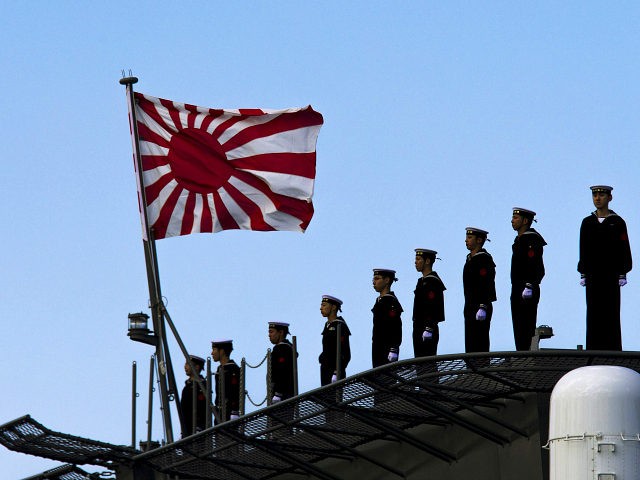Fox News reports that “the once unthinkable has started to go mainstream in Japan”: a nuclear arsenal to deter North Korean and Chinese aggression.
Fox quotes several analysts saying that mainstream Japanese security discussions now include the possibility of developing a nuclear arsenal, a topic formerly reserved for the fringes of political debate.
“Before now, even slightly saying such an idea forced politicians to resign. Now that seems no longer the case. The taboo on discussing de-nuclearization has been weakened,” explained Masako Toki of the Center for Nonproliferation Studies.
North Korea’s increasingly menacing behavior is the obvious cause for this shift in Japanese opinion, but concerns about Chinese threats to take the Senkaku Islands and Russia’s “increasingly aggressive actions in Japan’s airspace in recent years” are cited, along with President Trump’s focus on U.S. domestic issues instead of foreign alliances, and the sense that allowing bad actors to acquire nuclear weapons while peaceable nations play by non-proliferation rules may be a grave strategic mistake.
The legal situation for developing nuclear weapons is a bit murky, but some argue the Japanese constitution already permits defensive nuclear devices in its current form.
The Nuclear Non-Proliferation Treaty signed by Japan would represent another hurdle. As recently as May, Japanese officials were calling for the Non-Proliferation Treaty to be strengthened at its next review conference in 2020, and some Japanese favor pushing for a treaty to ban all nuclear weapons outright, although the government has officially stayed out of the Nuclear Weapon Prohibition Treaty conference at the United Nations. Why anyone believes Russia, China, North Korea, Iran, or similar states would pay attention to either the Non-Proliferation Treaty or a U.N. law against all nuclear weapons remains mysterious.
Japan has an abundant supply of plutonium if it wishes to begin weapons development. In fact, Japan’s deterrence strategy has long included an implied “bomb in the basement” – in other words, allowing adversaries to believe Japan could whip up a few nuclear warheads very quickly if it needed to.
A February analysis at The National Interest described nuclear Japan as “perhaps China’s greatest nightmare,” while assessing the chances of Japan actually developing a nuclear arsenal as slim. This estimate, however, was based largely on the idea that China would not push Japan into the nuclear club, while North Korea is driving the discussion at present.
The nightmare for China would come in the form of strategic adjustments and massive spending to counter the new Japanese threat. The bitter history between China and Japan from the World Wars suggests there would be a great deal of political pressure in China to take nuclear Japan very seriously, despite its postwar pacifist ideology.
The situation for Japan will grow more complex if South Korea develops nuclear weapons, an idea discussed more seriously in Seoul as North Korea gets closer to nuclear ICBMs. Possibly some Japanese decision-makers would feel a South Korean nuclear arsenal is enough of a deterrent against North Korea, China, and Russia to make Japanese weapons superfluous, while others would follow the path long-feared by non-proliferation advocates and argue that if Seoul has the bomb, Tokyo should as well.

COMMENTS
Please let us know if you're having issues with commenting.